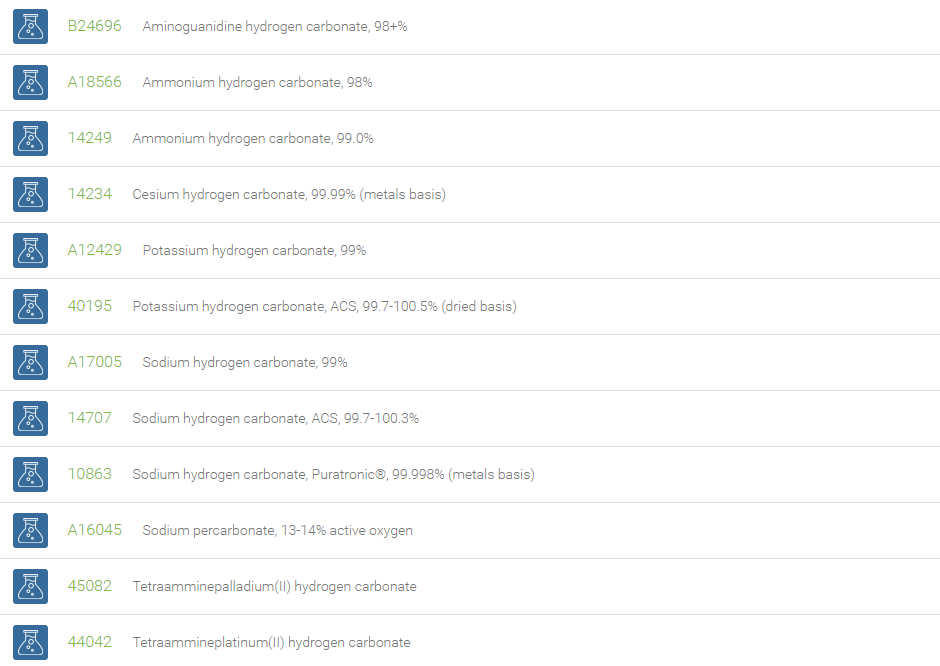Hydrogen Carbonates

Hydrogen Carbonates
Hydrogen carbonate, also referred to as bicarbonate, and amphoteric in nature, is an intermediate form in the deprotonation of carbonic acid and a polyatomic anion. Bicarbonate serves a crucial biochemical role in the physiological pH buffering system. The most common salt of the bicarbonate ion is sodium bicarbonate, NaHCO3, which is commonly known as baking soda. Bicarbonates are used as fire extinguishers, chemical reagents, and in medications as buffers. Bicarbonates are widely and extensively used in huge volumes in organic synthesis, pharmaceuticals, analytical chemistry, biotechnology, and biology owing to their basicity and buffering characteristics.
Ammonium bicarbonate is used in ceramics and polymer industries. It is also useful for the synthesis of catalysts, and chrome leather tanning. The blood value of bicarbonate is useful as indicator in diagnostics on the state of acid-base physiology. Bicarbonates are often used as inactive ingredients in pharmaceutical oral and parenteral formulations to stabilize the drug, maintain pH, and improve the solubility. Commonly used hydrogen carbonates are sodium bicarbonate, potassium bicarbonate, cesium bicarbonate, calcium bicarbonate, and ammonium bicarbonate.


